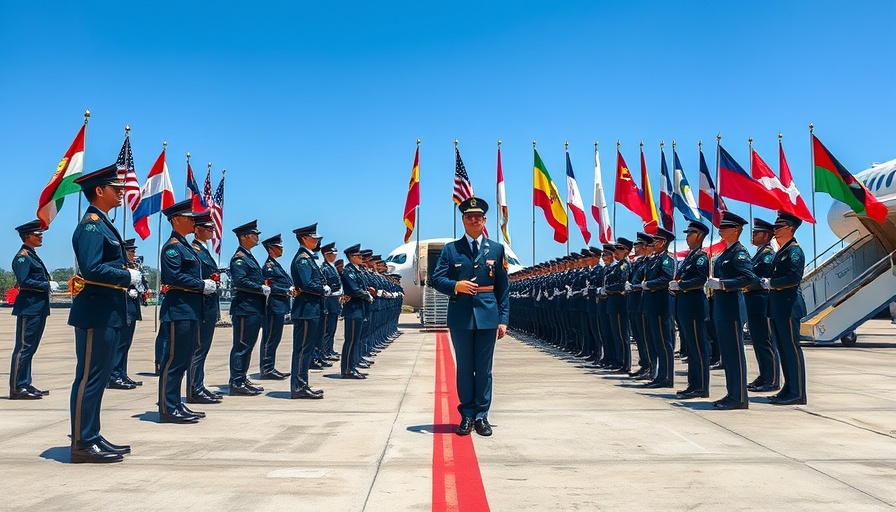
The Significance of Erdogan's Visit to Northern Cyprus
On the 51st anniversary of Turkey's military intervention in Cyprus, President Recep Tayyip Erdogan's visit to Northern Cyprus marks a pivotal moment in the ongoing geopolitical landscape of the region. This intervention, which began in 1974, was initially justified as a peace operation but has since cultivated tensions between Turkey and the Republic of Cyprus, as well as with the wider international community. Erdogan's presence symbolizes Turkey's steadfast support for the Turkish Republic of Northern Cyprus (TRNC), recognized only by Turkey and considered illegitimate by the United Nations.
In 'Turkish President Erdogan Visits Northern Cyprus On 51st Anniversary Of Turkey's Invasion', the discussion dives into Turkey's complex relationship with Northern Cyprus, exploring key insights that sparked deeper analysis on our end.
Historical Context: A Divided Island
Understanding the context of Erdogan's visit requires a look back at the historical division of Cyprus. Following a coup aimed at unifying the island with Greece, Turkish forces launched an invasion, seizing about 37% of the territory. This shift led to the establishment of the TRNC in 1983, a self-declared entity that has faced international isolation. The ongoing strife encapsulates issues of sovereignty, national identity, and the complex dynamics of regional politics.
The Importance of Erdogan's Rhetoric
During his visit, Erdogan emphasized the enduring bond between Turkey and Northern Cyprus, declaring that "the TRNC will never walk alone." His statements suggest that Turkey aims to bolster its influence in the area while simultaneously asserting its position against the Cypriot government and its allies. This rhetoric, while it fortifies support among nationalists, raises concerns about escalating tensions with Greek Cypriots and their supporters, particularly within the European Union.
Future Predictions: What Lies Ahead?
As Erdogan continues to navigate the delicate political landscape, analysts anticipate a few potential outcomes. The persistence of a divided Cyprus means that peace negotiations could remain stalled. However, growing international pressure may prompt a renewed dialogue. Alternatively, Erdogan's hardline stance could lead to increased militarization in the region, heightening the risk of confrontation.
Relevance to Current Events: Echoes in US Foreign Policy
The implications of Erdogan's visit resonate beyond Cyprus, drawing parallels to U.S. foreign policy decisions regarding territorial integrity and self-determination. As part of the broader discussion surrounding the governance of conflict zones, the situation in Cyprus reflects ongoing debates in the U.S. about national security, international relations, and the ethical dimensions of intervention.
Counterarguments: Diverse Perspectives on the Issue
While many view Erdogan's actions as an assertion of dominance in the region, others argue that this is a critical step for Turkish Cypriots seeking self-determination. Vocal proponents of TRNC governance contend that Erdogan's backing is essential for political representation. Listening to these voices adds a multifaceted dimension to the discussion, highlighting the complexity of Cypriot identity and aspirations.
Emotional and Human Interest Angles: Lives Affected by Division
The impact of the division extends to countless individuals on the island, with families separated across the Green Line separating the two communities. Many families have personal narratives of loss and longing for reunification, which punctuate political arguments. Each anniversary of the invasion serves as a grim reminder of enduring wounds and the hope for a resolution that honors both communities.
Conclusion: A Call for Peace and Understanding
The anniversary of Turkey's invasion serves as a poignant reminder of the need for continued dialogue and understanding between the Greek and Turkish Cypriot communities. As the global community observes these developments, it is crucial to advocate for peaceful resolutions that prioritize human lives and aspirations for unity. Each step taken towards reconciliation can help bridge the divide that has lasted more than five decades.
 Add Element
Add Element  Add Row
Add Row 



Write A Comment